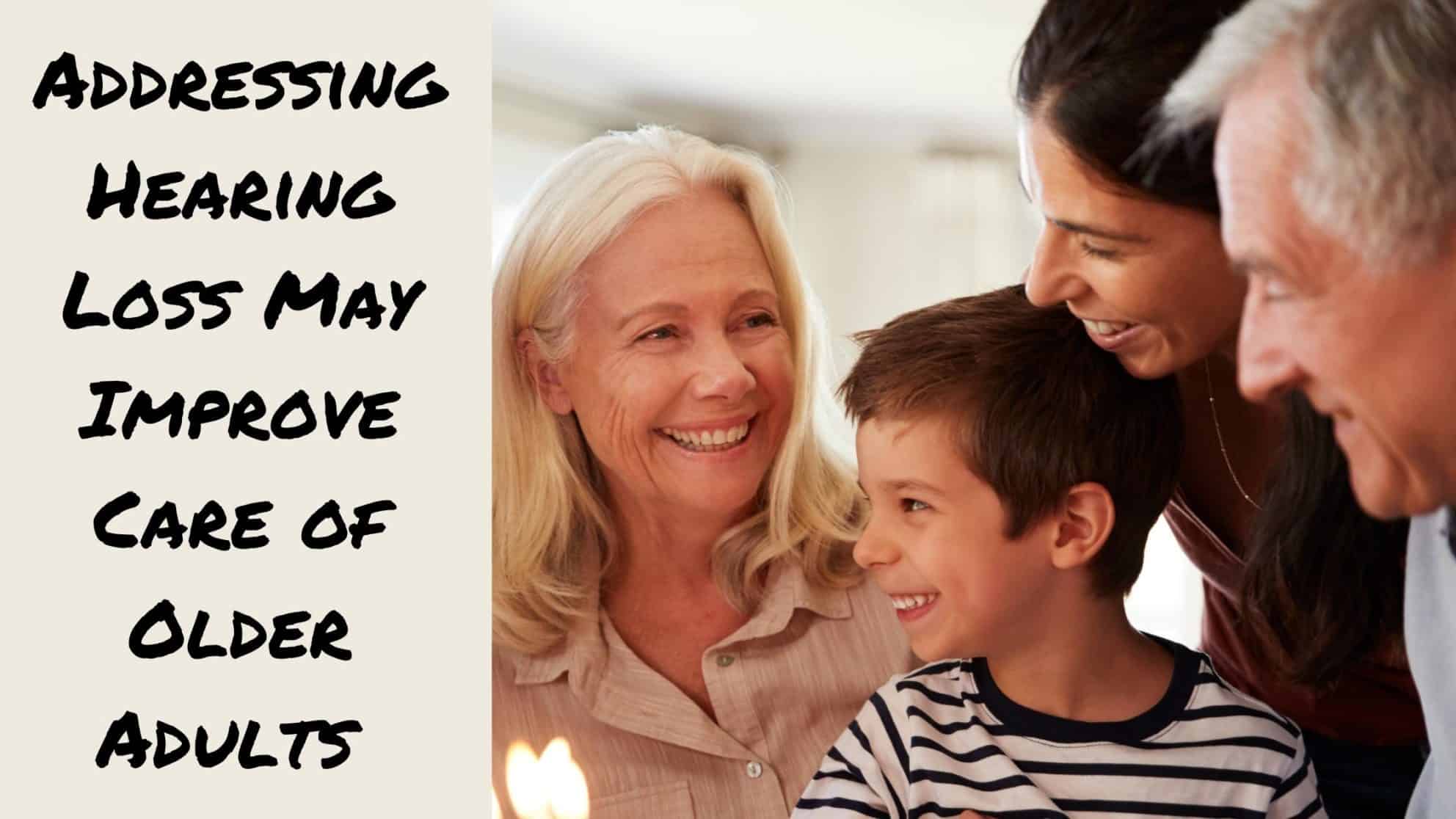As we’ve seen in the past year, the older in age you are, the more vulnerable to severe illness you can be when it comes to COVID-19. That’s why it’s vital that they quickly get the care they need in a hospital environment.
Sadly, while the challenges of people living with hearing loss in care facilities are well recognized and accepted, more can be done in medical settings to increase the standard of care. This is particularly important given the elevated risk that older adults carry when it comes to COVID-19. One miscommunication can mean the difference between life and death.
Healthcare settings may be challenging for those with untreated hearing loss
Untreated hearing loss can lead to many complications, which is why hearing loss treatment (often the prescription of hearing aids) can be beneficial. Treating hearing loss also ensures one’s independence and accessibility in different environments.
There are a number of factors that make it difficult for older adults with untreated hearing loss to maneuver and communicate in healthcare settings, such as hospitals or assisted living facilities.
Excessive noise: Although it may be relatively quiet in some hospitals, offices, and especially the private patient rooms of family medical practice facilities, many are not. In particular, the hospital environment, with constant beeping machines, noisy equipment, and a host of other distractions. It can be anything but conducive to attentive listening.
Urgency: Hearing loss can also make communication challenging for emergency and trauma response settings. These are usually high-stress settings that if life is at stake, the doctor’s questions are always uttered quickly and require an equally fast answer.
Lack of understanding: Persons with hearing loss can sometimes encounter a lack of sensitivity and awareness about hearing loss from medical professionals. Some studies indicate that physicians make fewer visits to hard of hearing patients’ rooms and spend less time in the room when they visit.
Use of facemasks: As facial expressions vanish under two layers of fabric, people with hearing loss face more significant communication difficulties and lipreading becomes impossible. Masks often decrease human speech volume and clarity, especially when there is ambient or background noise.
The information given to health care practitioners by older adults with hearing loss might not be accurate due to the above issues. This can result in inconsistencies or inaccuracies in diagnosis and overall care. That’s why healthcare providers must take action to better support people with hearing loss.
Tips for Improving Communication
1. Set the scene for good communication
- Think about the sound environment: When talking to a patient, reducing outside and background noise goes a long way to promoting comprehension.
- Face-to-face: If possible, face the patient directly, at the same level, and in a good light. Position yourself so that the light reflects on the speaker’s face, not on the listener’s eyes.
2. Pay attention to how you say things.
- Don’t talk from another room. Not being able to see each other while communicating is a common explanation why it is difficult for individuals to understand what is said.
- Speak clearly. Shouting distorts the sound of speech and can make it harder to read the speech.
- Start with their name or tap them on the shoulder. This allows the listener to concentrate attention at the beginning of the conversation and can decrease misunderstandings.
- Talk at a natural speed. Avoid speaking too fast or using excessively long sentences. Slow down a bit, pause between sentences or words, and wait before continuing to make sure you are clearly understood.
3. Pay attention to what you say
- Don’t repeat, rephrase. If it is difficult for a hard of hearing person to understand a specific phrase or word, try to find a new way of saying the same thing instead of repeating the initial words over and over again.
- Introduce the topic. Tell the patient what you are talking about now if the topic has changed.
4. Ask questions
- Adapt to individual needs. Try to make a point of seeing if there is some way that you can help them to understand better. For example, this may involve speaking to them closer to their left ear.
- Ask them to repeat essential details. If you need to relay specific details to the patient, such as time, a location, or phone numbers. Make them repeat the information back to you to ensure the important details are received.
The Hearing Health Center of Houston
Addressing hearing loss is one of the most important things you or your loved one can do for your overall health and well-being. When it comes to hearing loss, treatment is everything. Untreated hearing loss is a barrier to good interpersonal relationships, general physical well-being, and quality of life.
Our Doctors of Audiology are here to help. At the Hearing Health Center of Houston, we provide comprehensive hearing health services. We will consult with you to assess the best treatment if hearing loss is suspected. To set up an appointment for you or for someone you know, contact us today.


